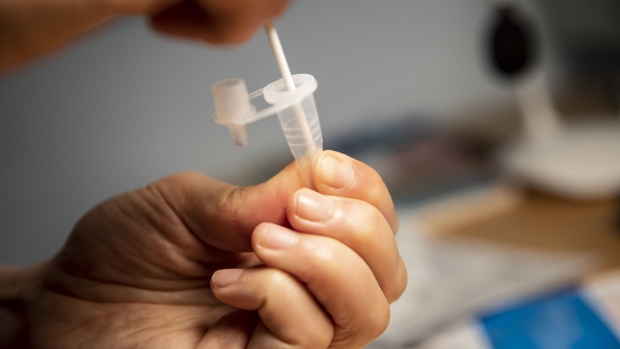Sep 26, 2023
Covid Is Back. Here’s What You Need to Know
, Bloomberg News

(Bloomberg) -- While the Covid-19 public health emergency may feel like a distant memory, the virus isn’t done with us. Hospitalizations have climbed back up and experts predict Covid cases will rise further as the weather turns colder.
But it’s not totally clear how we should prepare. When the darkest days of the pandemic passed, so did the near-constant briefings about when to stay home, how to get tested and which variants and vaccines are circulating.
The good news is the virus isn’t as lethal as it was three years ago. And we’re no longer facing the types of dire equipment shortages we once were, said David Wohl, a professor in the infectious diseases department at University of North Carolina School of Medicine. There’s some level of community immunity, he said.
But that’s no reason to get complacent. Covid can still make you pretty sick, so here’s what health experts now say you should do to protect yourself and those around you:
How bad is the latest outbreak?
Covid hospitalizations are the highest they’ve been since March. The most recent data available shows that the week ending Sept. 9, Covid-19 hospital admissions in the US rose 7.7% from the week before to about 20,500, continuing an uptick that began in July.
Experts have advised people take precautions like masking or avoiding crowded places when cases in their community are rising. While the US Centers for Disease Control and Prevention provides national data on hospitalizations and wastewater infection data in some areas, experts also recommend checking local health department sites to determine community risk levels.
According to Wohl, one of the most important reasons to keep monitoring cases is to track new variants.
Where can I test?
The symptoms of Covid include fever, cough, fatigue, loss of taste or smell and more. If you have symptoms, it’s a good idea to go ahead and get tested.
With the recent rise in cases, the federal government brought back a program to provide free at-home Covid tests. Beginning today, households in the US can order four testing kits at no cost via covid.gov/tests.
Beyond the four free tests, some insurers including Medicare and Medicaid cover testing, but coverage varies by plan.
And if I test positive?
Since the expiration of the public health emergency in May, robust virus trackers and programs providing vaccines and tests for free were dismantled, obscuring the status of the virus and leaving guidance up to individuals.
In general, the basics on what do to if you test positive for Covid still apply: Avoid contact with others, especially those who are at high risk of severe infection. Isolate for five days, monitor your symptoms and wear a mask if you must be around others. Treatments like antiviral medication may also be an option for some people, but for them to be effective, it’s important to take them as soon as possible.
There are also new guidelines. Earlier this month the CDC recommended updated booster shots for everyone over 6 months old, although the ensuing rollout has been rocky.
©2023 Bloomberg L.P.


